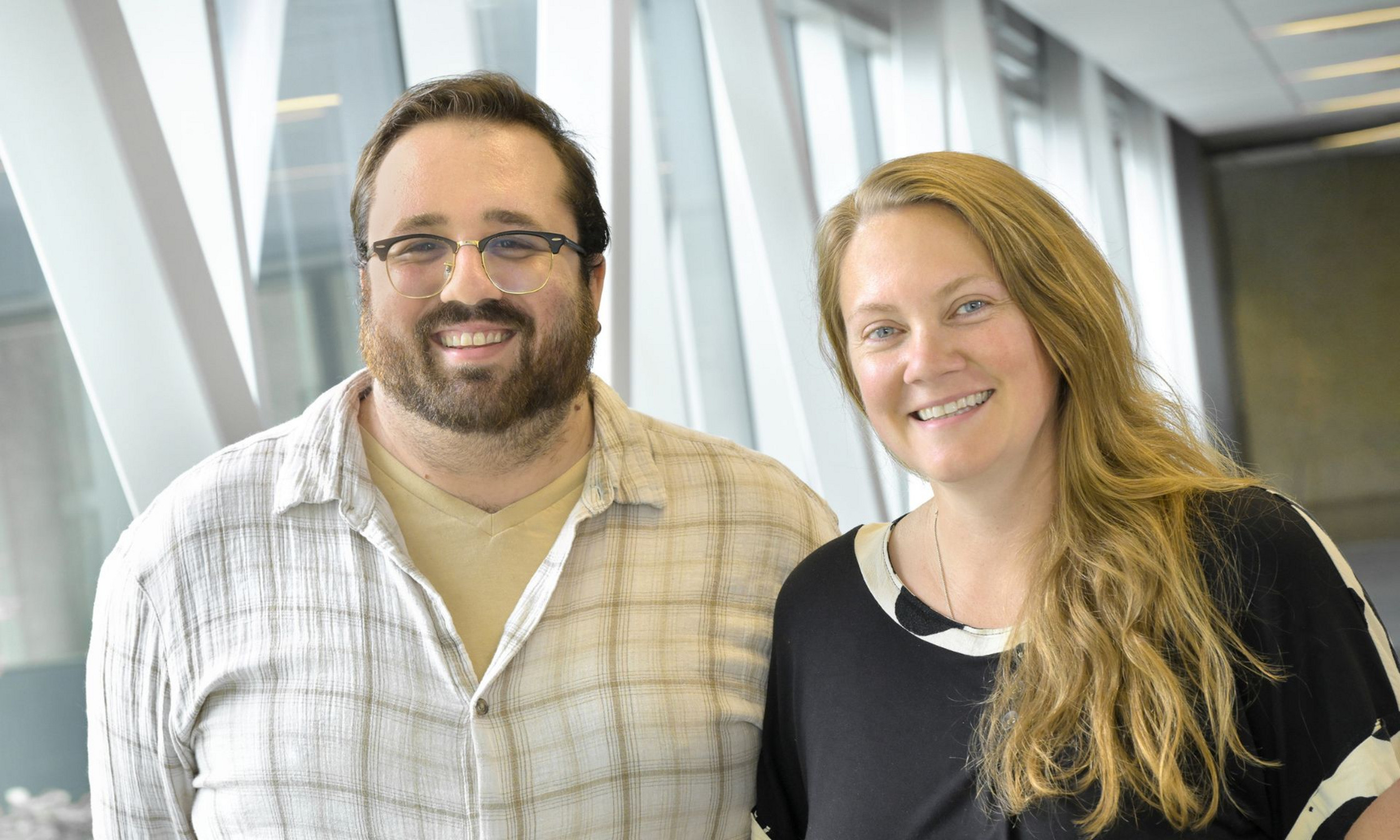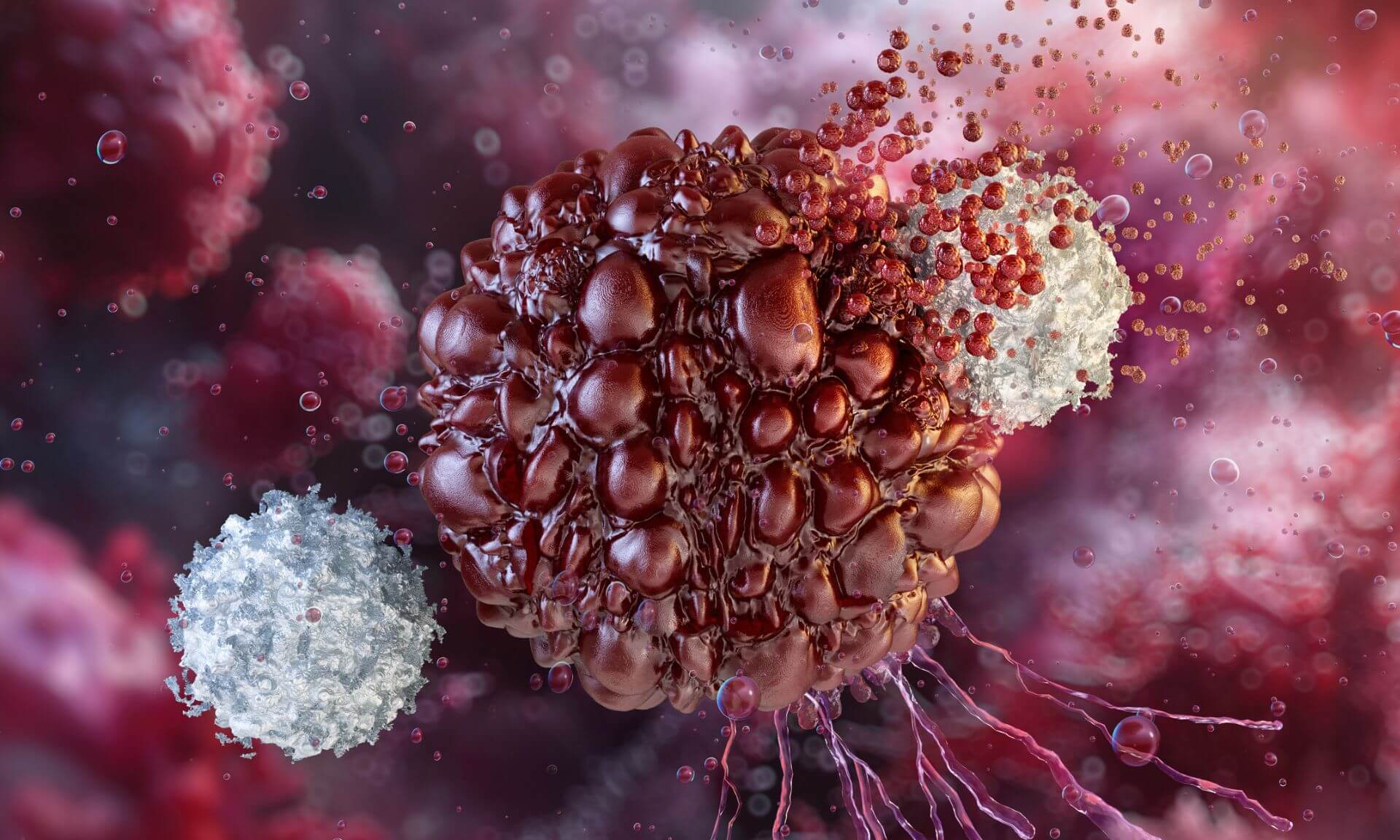Could a future vaccine against cancer be made better by an immune-boosting virus? Very likely, say Canadian scientists, who’ve proven its effectiveness in experiments on mice.
Led by Université de Montréal immunology professor Marie-Claude Bourgeois-Daigneault, the researchers succeeded in modifying the vesicular stomatitis virus genome in mice to produce interleukin-2 (IL-2) within the animals’ cancer.
Publishing their finding in the Journal for ImmunoTherapy of Cancer, Bourgeois-Daigneault and her team hope their breakthrough—a world first—will someday lead to improved personalized anti-cancer immunotherapy in humans.
In 2021, the team proved that viruses that kill cancer—so-called oncolytic viruses—can be used as adjuvants in vaccines, increasing their efficacy.
To allow the immune system to detect, target and attack cancer cells, the viruses are combined with peptides (antigens) specific to the mutations expressed in the target cancers.
“Our new study shows that in mice with melanoma our modified oncolytic virus produces a better immune response than the initial virus,” said Bourgeois-Daigneault, a researcher at the CRCHUM, UdeM’s affiliated hospital research centre.
“Notably, the modified virus induces short-term production of highly potent cells that target the disease—so-called short-lived effector cells—as well as memory cells, both very important in preventing cancer recurrence,” she said.
The resulting cells also secrete more cytokines, chemical messengers that play a key role in how well the immune system defends itself.
A new anti-cancer virus
These factors—a good balance between the two populations of immune cells and immune response stimulation—make this new modified virus created by the study’s first author Victor Mullins-Dansereau, an excellent candidate for a vaccine adjuvant.
Mullins-Dansereau is a member of Bourgeois-Daigneault’s laboratory.
“We are the only research team in the world to improve the vesicular stomatitis virus in this way, so that it can destroy cancer cells and strengthen immune system response in the context of anti-cancer vaccination. We emphasize that this is proof of concept,” specifies Bourgeois-Daigneault.
“Eventually,” she said, “for a two-dose vaccine it would be very easy to mix different types of oncolytic viruses in the same syringe, choosing the ones that can produce the desired immune response in the short and long term.”
No toxic effects
By introducing the gene that encodes immune-boosting IL-2 in the vesicular stomatitis virus, the scientists said they can ensure that the gene will be expressed primarily in the targeted cancer cells.
“The IL-2 will be produced in high quantities in the cells where the cancer is located,” said Bourgeois-Daigneault. “In our mice, we did not see any toxic effects.”
In the past, however, scientists who attempted to administer IL-2 systemically failed, as the doses required to effectively treat the disease were harmful for patients, added the scientist.
Her team is busy developing a new generation of vaccine adjuvants made with oncolytic viruses, hoping this form of anticancer vaccination could one day provide alternatives to chemotherapy or radiotherapy.




